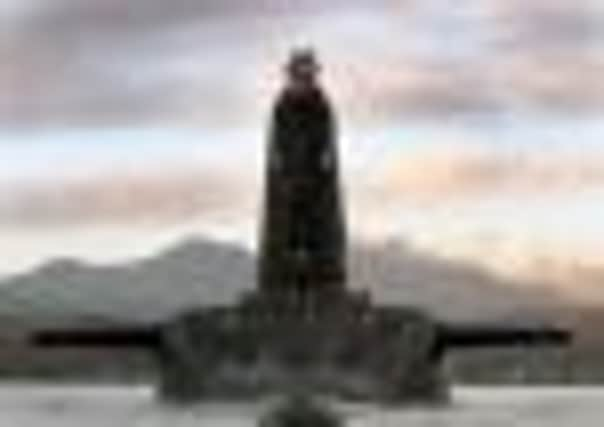Leaders: Clarity on defence needed before independence vote


On the basis of a Ministry of Defence breakdown, Scotland’s entitlement would equate to 26.6 tanks, two warships and 18 fast jets. But this would be little more than a starting point for long and complex negotiations with Westminster. First Minister Alex Salmond has already indicated that he would like Scotland to have an air force, navy and a single army mobile brigade, while Angus Robertson, the SNP’s defence spokesman has set out a prospectus for a Scottish defence force comprising 15,000 regular personnel with 5,000 reservists across the three services. Equipment needs to be carefully considered. A new Type-45 Destroyer is estimated to cost about £600 million, frigates £400m and minesweepers another £100m each.
Add to this the cost of new fast jets and sustaining a surface fleet at Faslane, and defence becomes a very substantial budgetary call on an independent Scotland.
Advertisement
Hide AdAdvertisement
Hide AdIt is surely right to question the sense of approaching defence on the basis of geographic share. Scotland may find itself saddled with equipment such as tanks that are inappropriate when we have a substantially larger share of coastline to protect. In fact, it is a nonsense, but the reality is that this division will be used to put a value on Scotland’s share of the assets and then the value will be negotiated.
But what this highlights is a need for a real debate about the shape of Scottish defence if the referendum result does result in a UK split. A major part of that debate has to be whether an independent Scotland would or would not be a member of Nato and on what terms.
The role and strategic aims of the armed forces, not just their equipment and resource requirements, would need to be determined. And logic dictates that these are issues for the parliament of an independent Scotland to determine. What we seek to protect in the event of independence – our strategic assets – and how we would deploy our budget resources to meet the aim of credible security and deterrence of external threat will be a core issue. These are not issues that can be settled by wrangles between Westminster and Holyrood committees but by a lengthy and complex process of analysis and assessment of the options available and agreement in the Scottish parliament. More importantly, before Scots are asked to make a decision on whether or not they stay within the UK, there has to be far greater clarity about what the initial defence posture could be and would be immediately after independence.
Olympics strike action is shameful
AS IF the huge logistical challenges of ensuring safe and efficient arrival of hundreds of thousands of visitors for the Olympic Games were not enough, the prospect of a 24-hour strike by Home Office staff the day before the Games open will cause frustration and outrage in equal measure. The choice of date – next Thursday – could not have been more cynically chosen. It is set to be the busiest day in the history of Heathrow Airport. Home Secretary Theresa May has described the timing of the action as “shameful” given the potential chaos it could bring to all those travelling to London that day.
Mark Serwotka, general secretary of the Public and Commercial Services Union, is an
outspoken opponent of the government and its deficit reduction programme. Given his previous form, it is hardly surprising he would not pass up the opportunity to put maximum pressure on the government. The casualties are travellers from all over the world who could now face intolerable delays and disruption.
The PCS union says that 57.2 per cent of those who voted backed strike action. But this overlooks the fact that turn-out was just 20 per cent. It is hard not to view this as a deeply provocative action by the union which will strip it of any residual public sympathy.
The pain inflicted on travellers puts at risk the billions spent on seeking to ensure that the Olympic Games are a global flagship success for the UK. The eyes of the world are upon us and this union seeks to bring discredit and
humiliation.
The government has to ensure that contingency plans are in place to minimise the effect of this deplorable and shameful action.